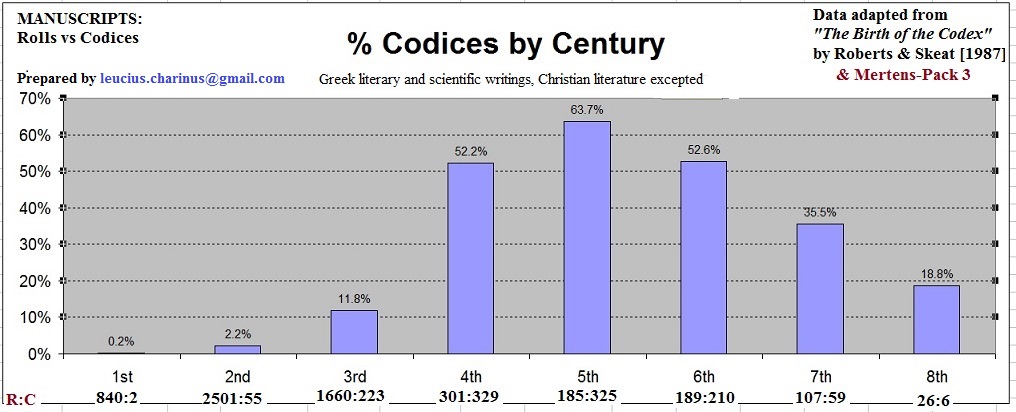Leucius Charinus wrote:Given this assumption we may explore the possibility not only that the first Christian historian Eusebius was the most thoroughly dishonest historian in antiquity, but that his continuators also indulged in forgery the fabrication of pseudo-historical narratives. We may also explore the possibility that the Emperor Constantine was not only aware of the fabrication of the NT but that he may have actually sponsored it.
A thorough scientific [criminal] investigation into writings of the Church may show that many writings attributed to Church writers are forgeries or falsely attributed.
The fact that writings of Josephus, Tacitus and the very NT Canon were manipulated hundreds of years later means that other Church writings themselves may have been interpolated or fabricated.
For example, "Church History" attributed to Eusebius may not have been written [wholly or in part] by such a person in the 4th century.
In Church History supposedly written by
Eusebius c 325 it is claimed that Josephus wrote about Jesus.
"Church History" 2.23.20.
Josephus, at least, has not hesitated to testify this in his writings, where he says, These things happened to the Jews to avenge James the Just, who was a brother of Jesus, that is called the Christ. For the Jews slew him, although he was a most just man.
But,
Julian the Emperor c 361-363, was willing to be branded as a LIAR, if anyone could show that a contemporary writer who mentioned Jesus, Paul or any of those Galileans.
Julian's Against the Galileans"
But if you can show me that one of these men is mentioned by the well-known writers of that time,----these events happened in the reign of Tiberius or Claudius,----then you may consider that I speak falsely about all matters.
Julian the Emperor c 361-363 CE did not know of the forgeries of Josephus and Tacitus or "Church History" where it is claimed that Josephus mentioned Jesus and Tacitus mentioned Christus.
It would appear that writings attributed to Church writers were forged and manipulated BEFORE and AFTER the 4th century.
Scholars have already admitted that many writings of the NT Canon are forgeries, falsely attributed and were manipulated and even Eusebius in "Church History" admitted 2 Peter does NOT belong in the Canon.The short gMark in the Sinaiticus and Vaticanus Codices dated to
the 4th century and the Long gMark in the Alexandrinus Codex dated to
the 5th century ALSO is EVIDENCE that authors of the Church Canon did FORGE, MANIPULATE, and FALSELY attributed the LONG gMark to the same author of the short gMark.
Once a thorough [criminal] investigation is carried out on Church writings it would be shown that many writings attributed to Church writers are really forgeries or falsely attributed and manipulated.
Another quick example of possible forgeries, false attribution and manipulations are the writings attributed to Tertullian of the 2nd -3rd century
There are many, many writings attributed to Tertullian including "Against Marcion" but virtually all of the writings presently attributed to Tertullian were NOT attributed to him in "Church History" attributed to Eusebius and "De Viris Illustribus".
Up to the end of the 4th century it was claimed by Jerome that
Tertullian wrote AGAINST the Church.
The Donation of Constantine is also another of example of forgeries and false attribution in the name of Constantine carried out hundreds of years AFTER Constantine was dead.
The very same manipulation and false attribution may also be found in other writings of the Church like
"Against Heresies" attributed to Irenaeus, supposed presbyter and bishop of the Church of Lyons.






